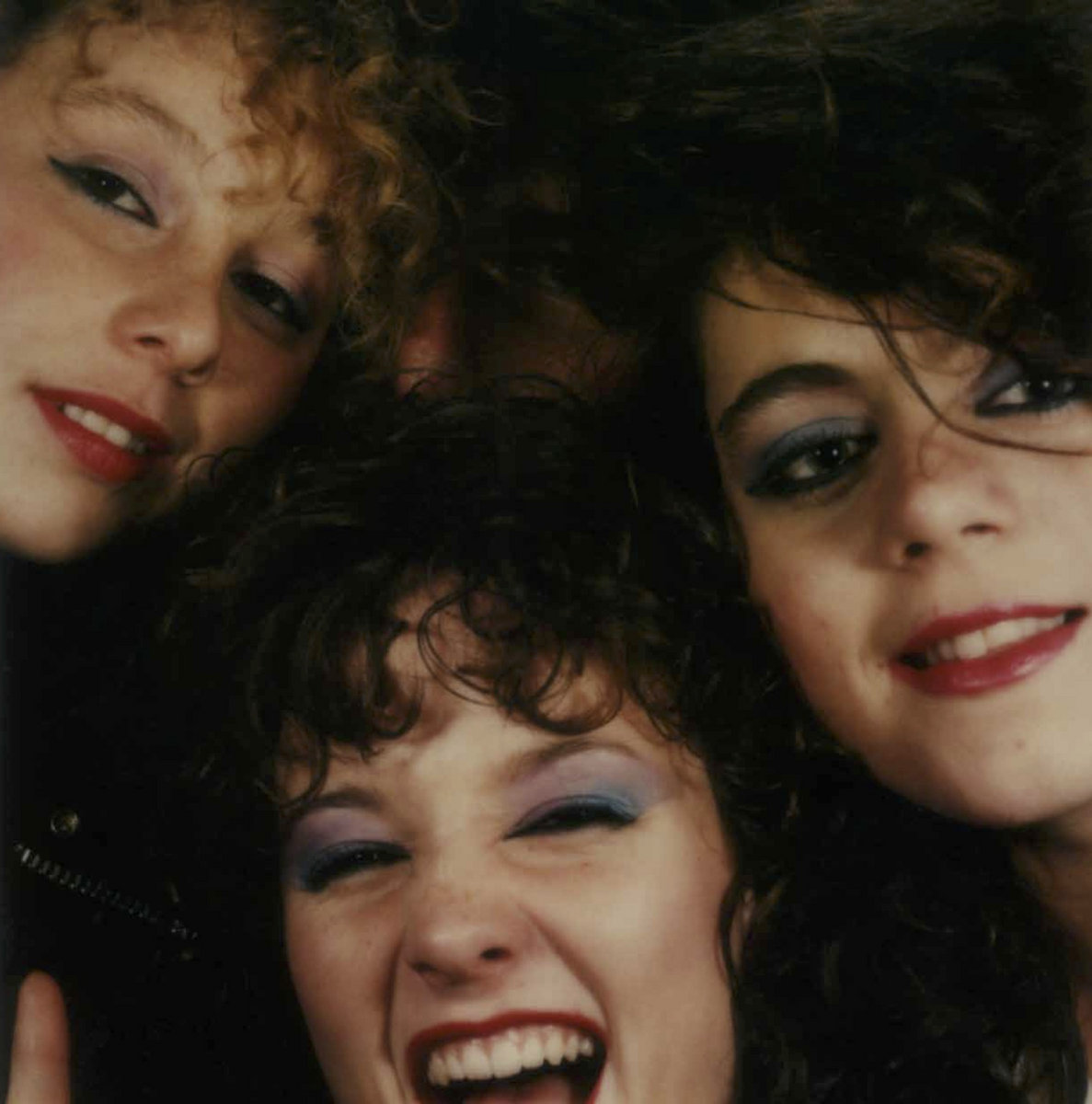Kids on a Crime Spree
Fall in Love Not in Line
SLUMBERLAND
Only Kids on a Crime Spree—or, I guess, My Bloody Valentine—could normalize an 11-year wait for a follow-up album. Like that friend who arrives three hours late with a bizarre yet justifiable excuse, the Oakland trio has been on a quest to restore a TASCAM 16-track analog recorder since 2011’s We Love You So Bad. The band is driven by a devotion to the archaic recording techniques of Wall of Sound pioneer/McCartney aggravator Phil Spector. Paired with a fondness for the usual jangling suspects such as The Feelies and The dB’s, the result is a cumulonimbus of reverby guitar-pop unconcerned with fitting in.
Luckily for delinquent-in-chief Mario Hernandez, drummer Becky Barron, and guitarist Bill Evans, anachronism and DIY aesthetics are in fashion (see releases from UV-TV and Kiwi Jr. last year). Having far outlived its Slumberland peers Veronica Falls, Kids’ second proper release proves that playing the long game is working. The eye of the storm and de facto title track is the swaggering “Boom Doom.” The ’60s-licked refrain of “Boom, boom, doom” feels like an iconoclastic dance craze out of a parallel universe’s club scene, with the accompanying mission statement: “So fall in love / Don’t dare fall in line / Be true.”
Right from the drumstick count-in, reverb marinates everything, adding depth as well as indistinctness to Evans’ hurried strumming. Occasionally Hernandez’s warble breaks through the fog—as on the speak-sung “Vital Points”—but he’s also content to let the ringing subsume him, such as on the Felt-indebted “We’re So Good,” the most dreamlike song on the record. The vocals are an androgynous pillow-talk murmur, the guitars a sunlit shimmer.
Fall in Love wraps within 25 minutes, its energy and brevity ignited by Barron’s coltish motorik drumming, which seemingly has two defaults: pummeling the tom-toms or pummeling the cymbals. The lockdown love single “When Can I See You Again?” exemplifies this against a plateau of rhythm guitar fuzz and a plinking lead line. The lyrics articulate a familiar question with cinematic longing, a combination the band nails throughout the LP.
Kids’ music goes over like ephemeral vignettes—polaroids of your parents with their friends, a Primitives cassette stuck in the deck of your friend’s car, a wobbly home video that sputters and blurs into a 49ers home game. Familiar, rose-tinted, revelatory. Never, it seems, has so much hassle gone into creating something that sounds this inadvertent.







